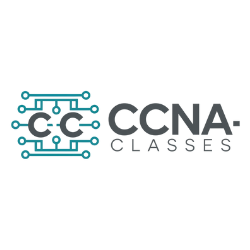Understanding the CCNA Exam
Preparing for the CCNA exam can be a challenging task, but with the right study strategies, you can increase your chances of success. In this section, I will walk you through the key aspects of the CCNA exam to help you better understand what to expect.
Exam Format and Topics
The CCNA exam consists of multiple-choice questions, simlets, and simulation questions. It tests your knowledge in various areas of networking, including network fundamentals, network access, IP connectivity, IP services, security fundamentals, and automation and programmability.
Exam Duration
The CCNA exam is a timed exam, with a duration of 120 minutes. To maximize your chances of completing the exam on time, it is important to develop efficient time management skills during your study preparation.
Passing Score
To pass the CCNA exam, you need to achieve a score of at least 825 out of 1000. This demonstrates your competence in the tested areas and qualifies you for the CCNA certification.
Study Resources
To effectively prepare for the CCNA exam, it is essential to utilize a variety of study resources. Here are some recommended resources that can aid in your preparation:
- Online training courses: Platforms like Cisco Networking Academy offer self-paced online courses with comprehensive study materials and practice exams.
- Official Cisco CCNA Study Guide: This guide provides in-depth coverage of the exam topics and includes practice questions to test your knowledge.
- Practice exams: Taking practice exams can help you identify areas where you need further study and build your confidence for the actual exam.
Exam Preparation Tips
To optimize your study efforts, consider the following tips:
- Develop a study plan: Create a study schedule that includes dedicated time for each exam topic.
- Hands-on practice: Set up a lab environment and practice configuring network devices to reinforce your understanding of networking concepts.
- Join study groups: Engaging with others who are also preparing for the CCNA exam can provide a valuable learning community and a platform for discussing challenging topics.
Setting Clear Study Goals
When preparing for the CCNA exam, it’s essential to set clear study goals. Having a clear sense of direction will help you stay focused and motivated throughout your study journey. Here are some strategies to help you set effective study goals:
- Be specific: Instead of setting vague goals like “study for the CCNA exam,” make them more specific. For example, you could set goals such as “learn subnetting” or “master OSPF configuration.”
- Set measurable goals: It’s important to have a way to measure your progress. Set goals that have clear milestones or targets. For instance, you can aim to complete a certain number of chapters or practice a specific number of exam questions each day.
- Create a study schedule: Plan your study sessions in advance and allocate dedicated time for each goal. This will help you stay organized and ensure that you cover all the necessary topics. Make sure to consider your other commitments and create a realistic schedule that you can stick to.
- Prioritize topics: Understand the weightage of each topic in the CCNA exam and prioritize accordingly. Focus more on the areas that carry more marks or that you find particularly challenging.
- Track your progress: Regularly assess your progress to see if you’re on track to meet your goals. This can be done by taking practice exams, reviewing your study notes, or reflecting on your understanding of the material.
Remember, setting clear study goals is just the first step. The next section will provide you with some effective study strategies to help you achieve those goals. Stay tuned!
Study Strategies for CCNA Exam Success
Now that you have set clear study goals, it’s time to implement effective strategies that will help you excel in your CCNA exam. With the right approach, you can optimize your study time and boost your chances of success. Stay tuned for the next section where I’ll share some valuable study strategies for the CCNA exam.
Creating a Study Schedule
When it comes to preparing for the CCNA exam, having a well-structured study schedule is crucial. A study schedule helps you manage your time effectively and ensures that you cover all the necessary topics before the exam. Here are some tips for creating an effective study schedule:
- Assess Your Available Time: Start by evaluating how much time you can dedicate to studying each day. Consider your work schedule, social commitments, and other responsibilities. Be realistic and allocate sufficient time for studying.
- Divide Your Study Sessions: Break down your study sessions into manageable chunks. It’s better to study for shorter periods of time with focused attention rather than studying for long hours without retaining much information. Aim for study sessions of around 30-45 minutes.
- Prioritize Key Topics: Identify the key topics that are covered in the CCNA exam and prioritize them in your study schedule. Focus on areas that you find challenging or need more practice. This ensures that you allocate adequate time to study the most important concepts.
- Mix Up Study Methods: Incorporate a variety of study methods into your schedule. This can include reading the official Cisco CCNA Study Guide, watching online training videos, practicing with simulators, and participating in hands-on lab exercises. Mixing up study methods keeps the learning process engaging and helps reinforce your understanding.
- Set Achievable Goals: Break down your study schedule into small, achievable goals. For example, aim to complete a certain number of chapters or topics within a specific timeframe. Setting achievable goals allows you to track your progress and stay motivated throughout your study journey.
- Create a Flexible Schedule: While it’s important to have a study schedule, it’s equally important to be flexible. Life happens, and unexpected events can disrupt your plans. Allow some flexibility in your schedule to accommodate any unforeseen circumstances.
Remember, creating a study schedule is just the first step. It’s important to stick to it and remain consistent in your study efforts. Regular revision and practice are key to retaining information and building a strong foundation for the CCNA exam. Keep track of your progress and adjust your schedule as needed to ensure you’re on track to achieve your study goals.
Utilizing Study Resources
When it comes to preparing for the CCNA exam, it’s crucial to have access to reliable study resources. There are numerous options available to help you acquire the knowledge and skills needed to succeed. Here are some effective ways to utilize study resources:
- Online Training Courses: Online training courses offer convenience and flexibility. They provide comprehensive coverage of CCNA topics, allowing you to learn at your own pace. Look for reputable platforms that offer interactive lessons, video tutorials, and practice exams to enhance your understanding.
- Official Cisco CCNA Study Guide: The official study guide is a valuable resource for exam preparation. It serves as a comprehensive reference, covering all the domains and objectives of the CCNA exam. Take advantage of this book to strengthen your knowledge and boost your chances of success.
- Practice Exams: Practice exams are an essential tool for familiarizing yourself with the exam format and assessing your readiness. They help you identify areas where you need improvement and build confidence in your abilities. Find practice exams that closely simulate the actual CCNA exam to get the most accurate assessment of your skills.
- Hands-On Practice: Networking is a practical field, and hands-on practice is essential to reinforce your understanding of concepts and technologies. Use networking equipment, simulators, or virtual labs to gain practical experience and develop troubleshooting skills. Doing so will greatly enhance your performance in the exam.
- Study Groups and Forums: Joining study groups or online forums can provide you with additional support and resources. You can collaborate with fellow CCNA candidates, discuss complex topics, and share study materials. This collaborative learning environment can help you gain different perspectives, clarify doubts, and reinforce your understanding.
By utilizing these study resources effectively, you’ll be able to enhance your learning experience, reinforce your knowledge, and increase your chances of success in the CCNA exam. So, make sure to incorporate these resources into your study routine and take full advantage of their benefits.
Practicing with Lab Exercises
When it comes to preparing for the CCNA exam, there’s no substitute for hands-on practice. Lab exercises provide an excellent opportunity to apply the concepts and theories you’ve learned and gain practical experience in networking.
Why are lab exercises important?
- Lab exercises allow you to work with real networking equipment or virtual simulations, helping you gain familiarity with the devices and configurations you’ll encounter in real-world scenarios.
- They provide a safe environment to experiment and troubleshoot different networking configurations without the risk of causing disruption in a live network.
- Lab exercises offer a way to reinforce your understanding of networking concepts by allowing you to see how they work in action.
- Set up your own lab: If possible, acquire real networking equipment or use virtual software to set up a practice lab. This will give you the most realistic experience and allow you to work with the same equipment you’ll encounter in the exam.
- Note: Purchasing networking equipment can be expensive. If budget constraints are a concern, consider using virtualization software that mimics networking devices.
- Follow lab exercise guides: Many online resources provide lab exercise guides specifically designed for CCNA practice. These guides offer step-by-step instructions on setting up different network configurations and troubleshooting common issues.
- Note: Make sure to choose reliable and up-to-date resources to ensure the accuracy of the lab exercises.
- Challenge yourself: As you gain more experience and confidence, try creating your own lab exercises or modifying existing ones. This will test your understanding of the concepts and allow you to explore networking scenarios beyond the scope of the exam.
- Record and review your progress: Keep a record of the lab exercises you complete, along with any challenges or insights you encounter. Regularly review your progress to track your improvement and identify areas that require further study.
Remember that lab exercises are not meant to replace other study materials such as textbooks or practice exams. They should be used in conjunction with these resources to enhance your understanding and practical skills.
By practicing with lab exercises, you’ll not only gain confidence in your abilities but also develop a solid foundation in networking that will serve you well in the CCNA exam and beyond.
Joining Study Groups and Forums
One of the most effective strategies for CCNA exam preparation is to join study groups and online forums. Being part of a community with fellow CCNA candidates allows for collaboration, sharing of resources, and gaining valuable insights from others’ experiences.
Here are a few reasons why joining study groups and forums can help enhance your CCNA training:
- Shared knowledge and resources: In study groups and forums, members often share study materials, practice exams, and tips for success in the CCNA exam. This collaborative approach provides access to a wealth of resources that can supplement your individual study efforts.
- Ask and answer questions: Have a question about a particular networking concept? Need clarification on a practice lab exercise? The study group or forum is a great place to ask questions and receive answers from experienced individuals. Likewise, you can contribute to the community by answering others’ questions, which can deepen your own understanding of the subject matter.
- Networking opportunities: Connecting with other individuals who are also preparing for the CCNA exam can open doors to valuable networking opportunities. By engaging in discussions and building relationships within the community, you may gain access to job leads, mentorship, or even study partners.
- Motivation and support: Studying for the CCNA exam can be challenging at times, but being part of a study group or forum provides a built-in support system. Encouraging and motivating each other, sharing progress, and celebrating milestones can help you stay motivated and focused throughout your preparation journey.
Remember to actively participate in the study group or forum by asking questions, sharing relevant resources, and contributing to discussions. It’s important to strike a balance between learning from others and maintaining your individual study routine.
Joining study groups and forums can be a powerful supplement to your CCNA training, offering the opportunity to connect with like-minded individuals, expand your knowledge, and ultimately increase your chances of success in the exam.
Taking Practice Exams
When preparing for the CCNA exam, taking practice exams is an essential part of my study strategy. These exams not only help me assess my knowledge and understanding of the material, but they also give me the opportunity to familiarize myself with the format and style of questions that I can expect on the actual exam. Here’s why practice exams are crucial and how they can maximize my chances of success:
1. Identify knowledge gaps
Taking practice exams allows me to identify any gaps in my understanding of the topics covered in the CCNA exam. By reviewing my answers and comparing them to the correct solutions, I can pinpoint areas where I may need to study further. This helps me prioritize my study time and focus on the areas that require the most attention.
2. Improve time management
The CCNA exam is timed, and completing it within the allotted time can be a challenge. Practice exams help me improve my time management skills by simulating the exam environment and putting me under time pressure. By practicing with timed exams, I can develop strategies for answering questions efficiently and effectively. This ensures that I can complete the exam on time without rushing or feeling overwhelmed.
3. Build confidence
Taking practice exams regularly builds my confidence and reduces anxiety. As I become more familiar with the exam format and the types of questions asked, I feel more prepared and comfortable on exam day. This confidence translates into better performance and the ability to think critically and logically under pressure.
4. Test exam-taking skills
In addition to testing my knowledge, practice exams also allow me to refine my exam-taking skills. I can practice reading and understanding questions quickly, eliminating incorrect options, and selecting the best answer based on the given information. These skills are crucial for success in the CCNA exam and can be honed through regular practice.
5. Track progress
Taking practice exams throughout my study journey provides me with a measurable way to track my progress. By comparing my scores and understanding the areas in which I am improving, I can stay motivated and focus my efforts where they are needed the most.
By incorporating practice exams into my study routine, I am able to reinforce my understanding of the material, improve my exam-taking skills, and boost my confidence levels. Remember, practice makes perfect, so don’t underestimate the power of practice exams when preparing for the CCNA exam.
Reviewing and Revising Material
When it comes to studying for the CCNA exam, reviewing and revising the material is a crucial step in the learning process. It helps to reinforce concepts, clarify any misconceptions, and ensure that the information is retained for the exam. Here are some effective strategies that I have found helpful in reviewing and revising material:
- Create comprehensive study notes: As I go through the study material, I make it a habit to take detailed and organized notes. This not only helps me to understand the concepts better but also serves as a valuable resource for future revision. I use headings, bullet points, and diagrams to structure my notes, making it easier to review and retain information.
- Utilize flashcards: Flashcards are an excellent tool for reviewing key terms, definitions, and concepts. I create my own flashcards based on the topics covered in the CCNA exam. I find that the act of writing down the information and then testing myself with the flashcards significantly improves my understanding and retention of the material.
- Engage in active recall: Instead of passively reading or re-reading the study material, I actively engage in recall exercises. This involves trying to remember information from memory without referring to any notes or resources. It not only strengthens my understanding of the material but also highlights areas that may require further review.
- Practice with practice questions: One of the best ways to review and revise the material is by practicing with CCNA practice questions. These questions simulate the actual exam format and test your understanding of the concepts. I make it a point to incorporate regular practice sessions into my study routine to identify any knowledge gaps and improve my problem-solving skills.
- Teach the material to someone else: One of the most effective ways to solidify your knowledge is by teaching the material to someone else. This could be a study partner, a friend, or even an imaginary audience. Explaining concepts in your own words helps to reinforce your understanding and identify any areas where you may need further clarification.
Remember, reviewing and revising material is an ongoing process throughout your CCNA study journey. By incorporating these strategies into your study routine, you can enhance your understanding of the material, reinforce key concepts, and increase your chances of success on the CCNA exam.
Maintaining a Healthy Work-Life Balance
As I prepared for the CCNA exam, I quickly realized that it would require dedicated time and effort. However, it’s essential to strike a balance between studying and other aspects of life to avoid burnout and maintain overall well-being. Here are a few strategies I found effective in maintaining a healthy work-life balance during my CCNA training:
1. Prioritize and manage your time efficiently: I made sure to set realistic goals and create a study schedule that allowed me to allocate enough time for studying while also taking care of my other responsibilities and interests. By prioritizing my tasks, I could ensure that I made progress in my CCNA training without neglecting other important aspects of my life.
2. Take breaks and engage in self-care: Taking regular breaks during study sessions helped me clear my mind, relax, and recharge. Whether it was going for a short walk, practicing mindfulness, or pursuing a hobby, these breaks not only improved my focus but also prevented burnout. Remember, it’s important to take care of your physical and mental well-being.
3. Communicate with your support system: I found it beneficial to communicate with my family, friends, or colleagues about my study commitments. By letting them know my schedule and goals, they could understand the importance of my CCNA training and provide the necessary support. This open communication helped reduce any undue stress or guilt and allowed me to focus on my studies.
4. Set boundaries and limit distractions: When studying, I made a conscious effort to eliminate distractions and create an optimal learning environment. This involved setting boundaries with technology, such as turning off notifications on my devices, finding a quiet space to study, and establishing specific study hours. By minimizing distractions, I could maximize my productivity and make the most of my study time.
5. Make time for relaxation and leisure: It’s crucial to make time for activities that you enjoy and help you relax. Whether it’s spending quality time with loved ones, engaging in a hobby, or engaging in physical exercise, these activities can help you unwind and maintain a healthy work-life balance.
Conclusion
In this article, I have discussed the key aspects of the CCNA exam and provided effective study strategies to help you prepare for success. By utilizing study resources such as online training courses, the official Cisco CCNA Study Guide, and practice exams, you can gain the knowledge and confidence needed to excel in the exam. Joining study groups or online forums can provide additional support and resources, allowing you to collaborate with fellow CCNA candidates.
Practicing with lab exercises is crucial for gaining practical experience in networking. Setting up a practice lab with real equipment or virtual software, following lab exercise guides, and challenging yourself to create or modify exercises will help you develop your skills. Taking practice exams is also essential for identifying knowledge gaps, improving time management skills, and building confidence.
To reinforce understanding and increase your chances of success, create comprehensive study notes, utilize flashcards, engage in active recall, practice with questions, and teach the material to someone else. Additionally, remember to maintain a healthy work-life balance during your CCNA training by managing your time efficiently, taking breaks, and prioritizing self-care.
By implementing these strategies, you can optimize your CCNA training and increase your chances of passing the exam with flying colors. Good luck on your journey to becoming a certified network professional!





